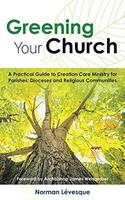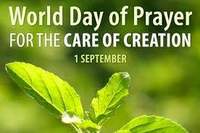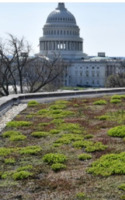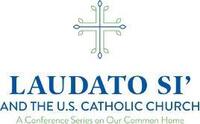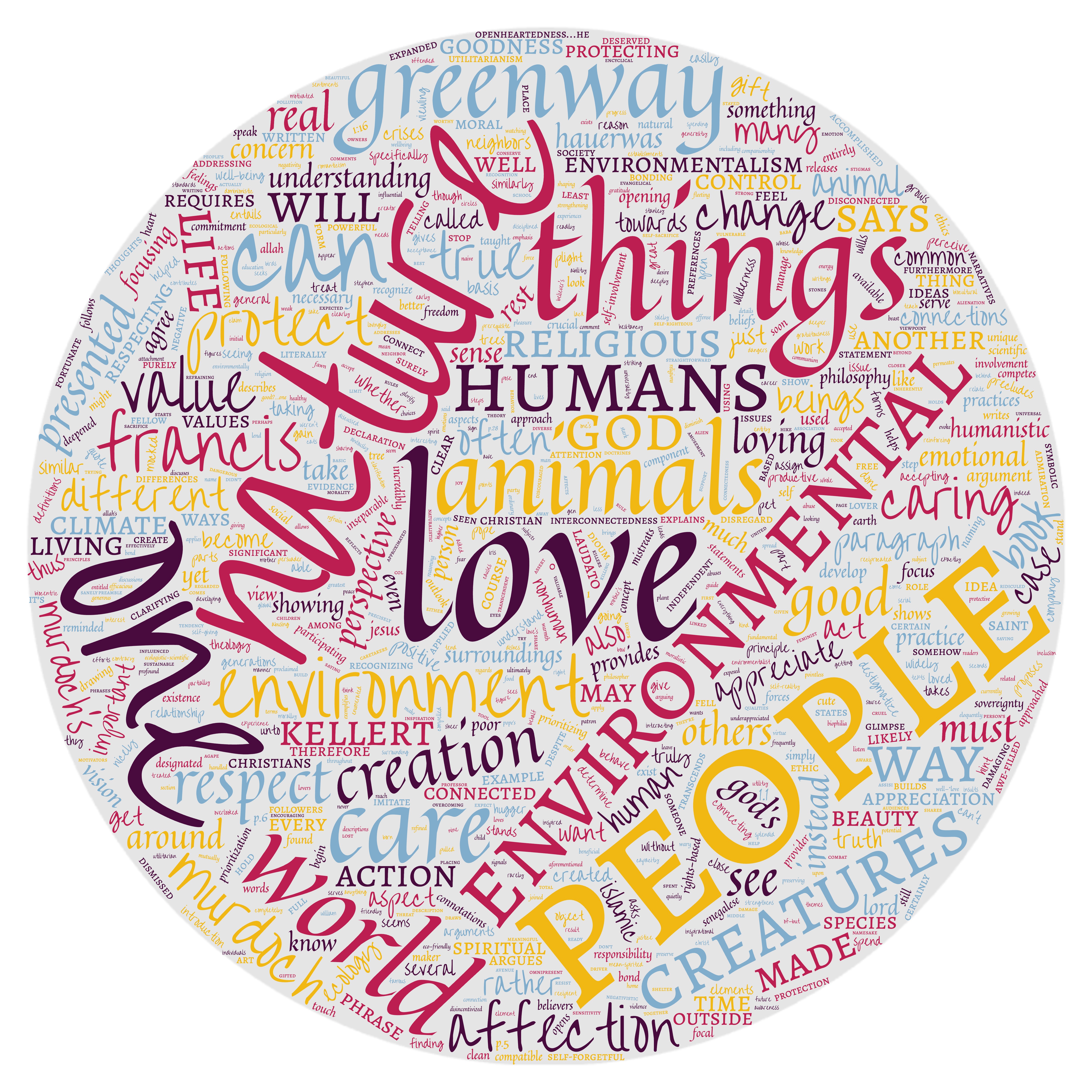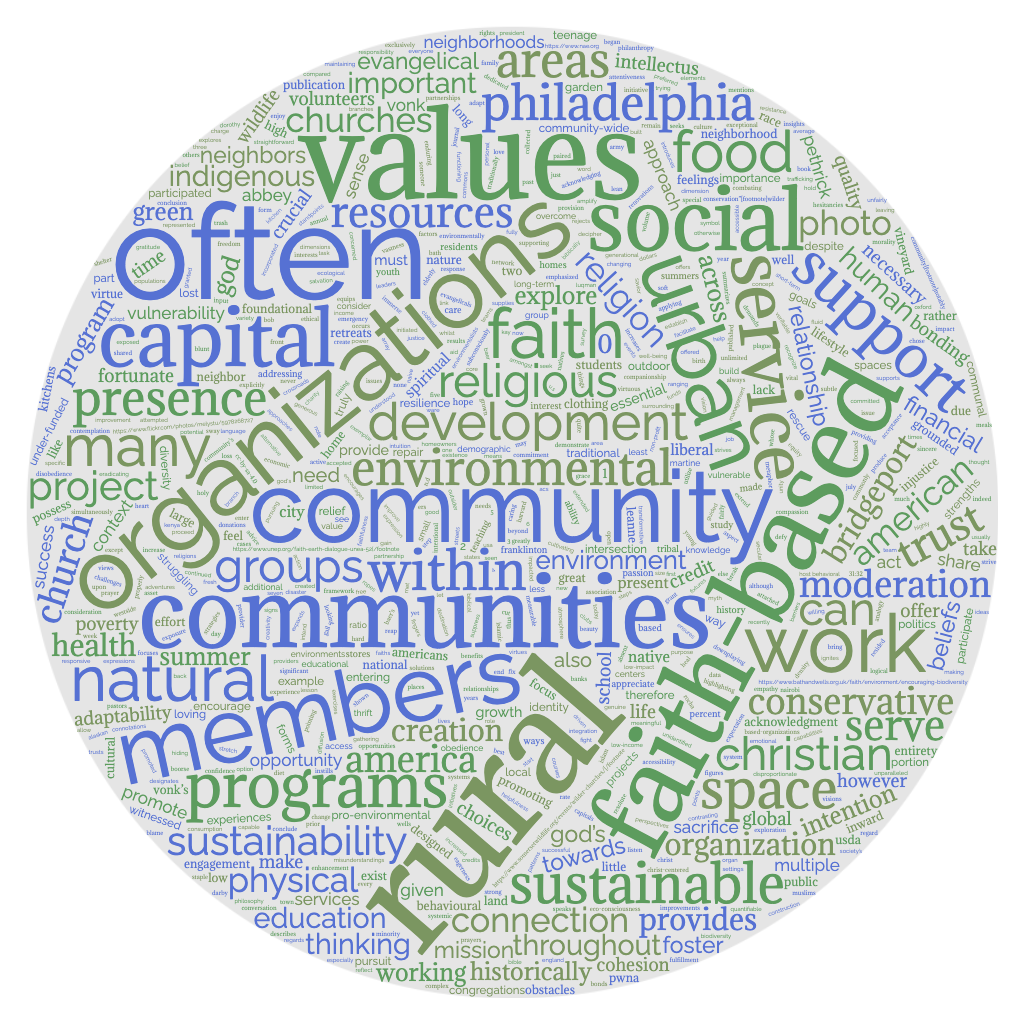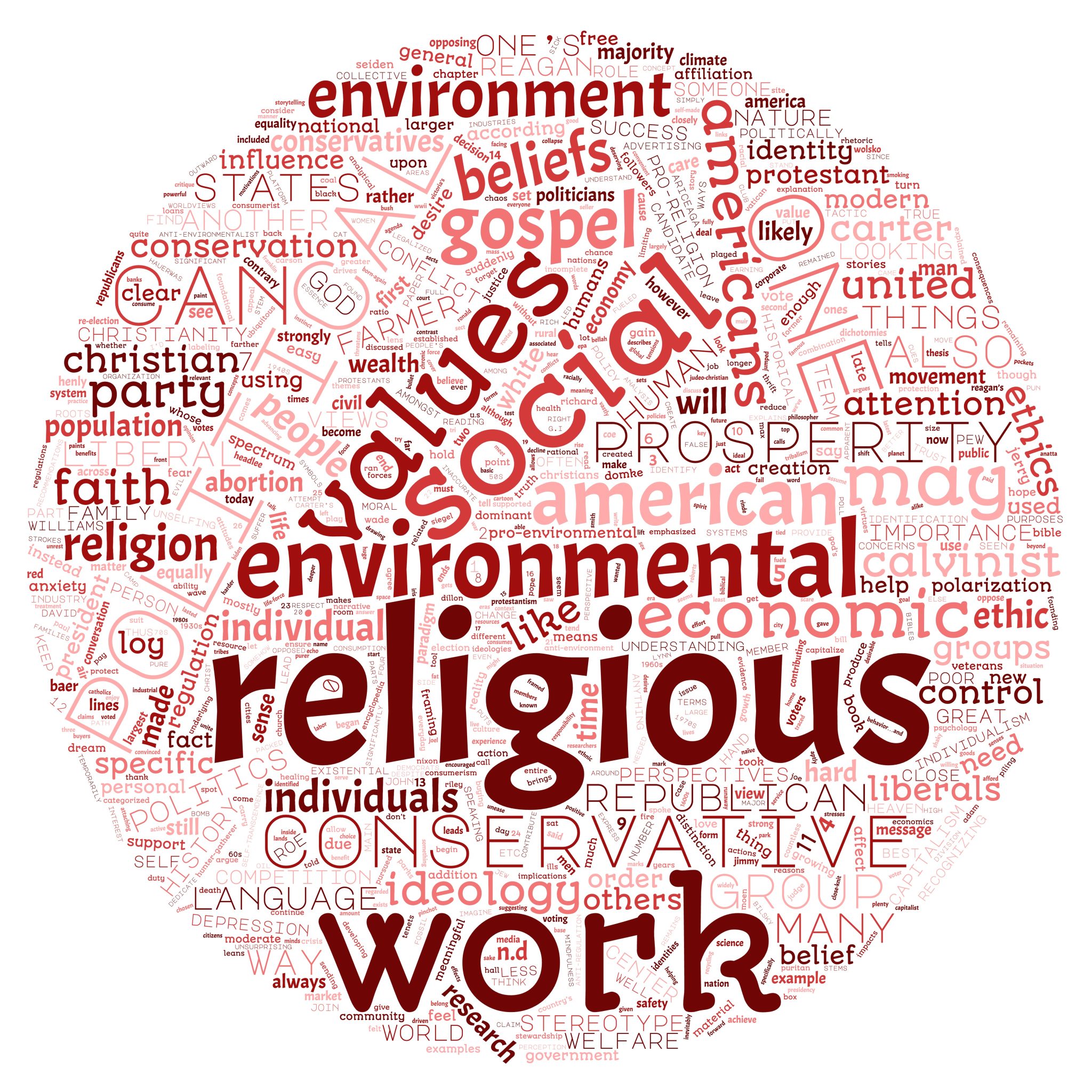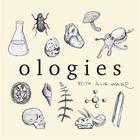Search
163 items
-
Justice for Each Generation
Justice for Each Generation started with the landmark case, Juliana v. U.S. Twenty-one youth had filed a lawsuit against the United States government for its role in causing climate change and violating their right to life, liberty, and property, while also failing to protect essential public resources. They are calling for sermons from youth and adults of all faiths as a collective statement that sends a signal to the rest of society. -
Greening Your Church
"A Practical Guide to Creation Care Ministry for Parishes, Dioceses and Religious Communities," as this book's subtitle reads, author Norman Lévesque identifies and outlines strategies to creating environmentally friendly congregations. In 104 pages, learn about the theology of creation care ministry and how to green-ify your community to reduce impacts on God's creation. ISBN: 9782896466368 -
Interfaith Center on Corporate Responsibility
The Interfaith Center on Corporate Responsibility is an organization that advocates for better labor laws, financial services, sustainable development, and accessible health care. It is their mission to incorporate social values into corporate actions. Founded in 1971, the ICCR has been an integral part of advocating for resilient and sustainable corporations, but has been met with pushback from industries that do not want to follow regulation and social values. More information about programs, resources, and membership is available on their website. -
Engaged Organizations: St. Vincent de Paul School, Mt. Vernon, OH
Creation care work at St Vincent de Paul School, Mt. Vernon, began in 2006 when the school received funding from the Knights of Columbus to purchase a dishwasher for their kitchen. Following this, the school began participating in the Hope Now program – an organization that provides used old donated doors to build tables. The school provides transportation to their annual K-6 field trip to The Brown Family Environmental Center at Kenyon College and their annual 5th grade summer camp through Lutheran Outdoor Ministries in Ohio (students take turns weighing food waste). Additional sustainability projects include collaboration with the parish and the local community. The school participated in an all-parish project through the Green Tree Plastics company’s A Bench for Caps sustainability program (students collected and sorted bottle caps in exchange for three benches). The school plans to create a grotto area using their three recycled benches. In order to foster green living and healthy community-school relations, the school provided planter flowers to local businesses.
Administrators at St. Vincent de Paul acknowledge the importance of maintaining social justice programs in accordance with Laudato Si's urgent message to care for the poor. Students from Beth’s Robinson's 6th grade social studies classes participate in a demographics project. Each year students select one continent, usually Africa, to learn more about the conditions of poverty. The class then raises money through various fundraisers and donate to parts of the continent through Catholic Relief Services. An upcoming project includes having students sew plastic bags together to create tarps to be donated to homeless shelters in the area.
-
Engaged Organizations: Recyclean, Inc. Kenosha, WI
Recyclean, Inc., is a deconstruction company located in Kenosha, Wisconsin, with a new branch to be opened in Columbus, OH in the near future. About 15 years ago, the owner recognized that there was too much waste entering landfills, as construction landfill waste is predicted to double by the year 2025. The company focuses on the reuse and recycling of materials and structures from the deconstruction work of their residential projects, which comprises 70 percent of their business, as a way to decrease the amount of materials that enter the landfills. Prior to renovations and tear downs, the company provides a quote for the materials and a 3rd party independent appraiser assigns value to the estimated donation value. Some of the materials are donated to community charities – i.e. Restores of Habitat for Humanity or Columbus Architectural Salvage. Homeowner are able to choose a charity based on the options provided by the company. Other materials, such as brick and wood, are recycled (purchased for use elsewhere). Recyclean, Inc. aims for 70 percent of the materials to be recycled and reused. The company also provides facilitation for the transfer, including delivery of materials and building structures, to their respective designated entities.
-
Engaged Organizations: Habitat for Humanity Restore
Habitat MidOhio Restores aims to reduce costs associated with affordable housing construction as well as reduce the amount of waste going into landfills. Restores accepts new or used household items and materials from individuals or businesses. The proceeds then assist with Habitat MidOhio's administrative costs in building affordable housing.
Recycling Inc. often donates there following their building deconstruction projects. -
Low-Cost Construction Techniques for Earth Keepers
Technology for the Poor, a non-profit charitable organization based in Westerville, Ohio, discuss their techniques for low cost construction from an excerpt from their manual:
"The Construction Techniques described in this manual use straw as filler in wall sections. It further describes how one need not have to bale the straw to use it for wall construction. The author used the techniques described in this manual to build plastered straw structures in India and Pennsylvania. The pictures in the following pages should provide sufficient information for anyone to construct a low-cost, earth-friendly building using straw as building material for the walls." -
Tomorrow (Sept. 1) is World Day of Prayer for the Care of Creation: Pope Francis calls on believers and unbelievers to care for our common home
Thursday, September 1, 2016, has been declared a shared World Day of Prayer for the Care of Creation by Catholic and Orthodox Christian communities. This year, Pope Francis issued a video invitation to prayer in which he calls believers and unbelievers alike to work together to care for our common home. In August of 2015, the pope issued a letter
(https://w2.vatican.va/content/francesco/en/letters/2015/documents/papa-francesco_20150806_lettera-giornata-cura-creato.html) declaring Sept. 1 as an annual day of prayer for the care of creation, joining the Orthodox Church, which has been doing so since 1989. Citizens are urged to pray and join a local prayer service, or if no local service is offered, representatives from Catholic, Protestant, Orthodox and Episcopalian churches will offer an online prayer service (https://seasonofcreation.org/2016/08/25/sept-1-online-prayer-service/) at 8am US EDT. -
Profile: Melanie Harris
Dr. Melanie L. Harris is Associate Professor of Religion at Texas Christian University in Fort Worth, TX . There, she teaches and conducts research in the areas of Religious Social Ethics, African American Religion and Environmental Justice. She is a GreenFaith Fellow and co-director of Earth Honoring Faith with Ghost Ranch Education and Conference Center. Dr. Harris is currently a member of the Board of Directors of KERATV/Radio in Dallas and facilitates contemplative retreats as a licensed Spiritual Director. She is the author of Gifts of Virtue: Alice Walker and Womanist Ethics (Palgrave), as well as coeditor of the volume Faith, Feminism, and Scholarship: The Next Generation (Palgrave) and editor of Ecowomanism: Earth Honoring Faiths (Brill).
Along with Dr. Jennifer Harvey, Dr. Harris conducts workshops about racial justice, womanist ethics and environmental justice. She has presented to audiences in the AME, United Church of Christ, and Baptist church traditions. -
United Methodist Agency Green Roof
John Hill, from the Board of Church and Society at the United Methodist Agency, narrates the video below about their recent green roof addition. The series of squares used covers the entire area of the flat roof, reducing energy consumption, making the building cooler in the summer and warmer in the winter. In addition, and equally important, it reduces storm water runoff. When it rains, the water remains in the roof rather than adding pollutants into the nearby watershed, which feeds into the Chesapeake Bay. -
Laudato Si' and the U.S. Catholic Church Recordings
"The 2023 Laudato Si’ and the U.S. Catholic Church (June 14-July 27, 2023) national conference, is part of a biennial conference series co-sponsored by Creighton University and Catholic Climate Covenant to equip and inspire Catholics to more deeply integrate Laudato Si’ and its creation care teachings into the U.S. Church. The purpose of this year's conference is to encourage a greater understanding of the Laudato Si’ Action Platform’s seven goals – Response to the Cry of the Poor, Ecological Economics, Adoption of Sustainable Lifestyle, Ecological Education, Ecological Spirituality, Community Resilience and Empowerment, and Response to the Cry of the Earth – and encourage Catholic individuals and groups to enroll in the Platform, providing them with a clearer path for accomplishing each of the goals through speaker presentations." -
Religious Groups Combatting Rising Sea Levels in Louisiana
Donald and Theresa Dardar have made it their mission to save the the susceptible coasts of Louisiana from rising sea levels due to climate change. Joining forces with the local Presbyterian church, Donald and Theresa have preserved sacred mounds, refilled oil field canals, and have built elevated greenhouses. Numerous faith groups in Louisiana have prioritized saving the environment as impoverished people experience heightened effects of climate change. Preserving the community around these faith groups drives individuals to maintain the unique and celebrated environment of Louisiana. -
United Church of Christ Environmental Justice Ministries
"From the birth of the environmental justice movement in the 1980s to the local ministries of churches throughout the country today, the United Church of Christ has been making a profound difference in caring for God’s creation. Learn more about our history, the Creation Justice Church program, Earth Day resources, the Pollinator newsletter, Creation Justice Webinars, and the work of the UCC Council for Climate Justice." -
International Indigenous Youth Council
The International Indigenous Youth Council is a youth-led organization of 9 chapters across Turtle Island. They seek to protect Indigenous land and culture through spiritually-guided community organizing and nonviolent direct action. IIYC was founded after the Standing Rock Indigenous Uprising of 2016, and is credited with successfully defending protecting the Cannonball and Missouri Rivers from the Dakota Access Pipeline construction. Today, they spearhead actions against policy, pipeline construction, and climate finance contributing to the climate crisis directly effecting their communities. -
Love and Environmentalism
This chapter from the student-written book “Emerging Perspectives on Religion and Environmental Values in America” explores how love and care impact how people interact with the environment, and how spirituality views and impacts this. It discusses how religion encourages love and how love encourages environmentalism, and how the three work together. Below is the first paragraph of the chapter to introduce the discussion.
"My mother had one general rule for me as I was growing up: to respect others, respect myself, and respect the environment. Obviously there were more rules that fell under this— 'clean the dishes after school' being one I was just as frequently reminded of—but they all fell under this principle in some form. This was also the basis of my environmental education: respecting the environment, showing it the care, love and awe that it deserved, was a fundamental aspect of our lives. Every time we would go outside or take a hike, I would be reminded not to touch anything I didn’t have to, to leave things the way I found them, and to appreciate the beauty of our surroundings. These ideas of respecting others and your surroundings are common themes in religious doctrines as well—'love thy neighbor' is a common refrain, and one that is often used in religious environmental arguments. As can be seen in many religious statements on environmental crises, protecting those less fortunate than yourself (respecting others) and protecting the gift of creation (respecting the environment) are the focal points of religious arguments in support of environmental action. Yet the love of nature is often underappreciated or overlooked when it comes to discussions of the environment, despite its universality. Perhaps because the concept is emotional rather than scientific, love is more easily dismissed as a weak persuader, but because it is so basic to humans it stands to be one of the more powerful forces we have available to us. As a common religious and moral value, the love and respect that people are asked to treat their surroundings with is a significant driver in environmentalism, both to better understand the environment and to create a sense of responsibility in preserving it." -
The Essential Presence of Faith-Based Organizations in Sustainable Community Development
This chapter from the student-written book “Emerging Perspectives on Religion and Environmental Values in America” explores the presence of religious organizations providing service to local communities. It discusses the broad range of faith-based organizations and their many projects, and how engaging with these organizations and programs can improve connections to one's environment and spirituality. Below is the first paragraph of the chapter to introduce the discussion.
"The presence of faith-based organizations as social, human, and cultural capital within every community, regardless of demographic dimension, politics, race, and income demonstrate the resilience of religion as an asset essential to the cultivation of sustainable community development. Throughout history, religious groups have served as providers of essential services for the less fortunate, and advocates for social justice and equity in both rural and urban communities. Despite trying circumstances, this resolute effort over time and their relative success in providing support to those in need, has afforded faith based-organizations credibility, and in some cases their role is indispensable." -
Origins of the Pro-Religion, Anti-Environmentalist Conservative Stereotype
This chapter from the student-written book “Emerging Perspectives on Religion and Environmental Values in America” explores the relationship between political affiliation and environmental values, as well as the stereotypes surrounding them. It examines how religion interacts with political views and the evolution of environmental values thoughout political and religious history. Below is the first paragraph of the chapter to introduce the discussion.
"The conception of someone who is 'anti-environment' usually evokes one of two images: 1) a fat cat in a suit, smoking a cigar while lining the pockets of the fossil fuel industry, or 2) a truck-driving rural American scoffing at the Prius-driving liberals in the cities who preach about their recycling practice. This chapter focuses on the second image...The distinction has been made clear in our minds: liberals care about the environment and conservatives don’t. This, along with another common conception that conservatives are religious while liberals aren’t, paints an inaccurate picture that drives religious conservatives out of the environmental conversation. How did this happen?" -
Ologies: Critical Ecology (SOCIAL SYSTEMS + ENVIRONMENT) with Suzanne Pierre
"How do societal structures affect the planet? Why should we get to know our neighbors? What’s the ecological price we pay for … stuff? Yep, there’s an -ology for that. We chat with the founder of Critical Ecology: biogeochemist, National Geographic Explorer, researcher and plant nerd, Dr. Suzanne Pierre. Dr. Pierre’s Critical Ecology Lab is involved with research on the biomes of former plantations, air pollution, agricultural runoff, and even asking questions about wildfire science and the prison system. She explains how the Big Picture can always zoom out and be a little bigger. Before you know it, you’ll see Critical Ecology everywhere you go." -
Sustainability Photo Contest
This RESTORExchange photo contest is being brought back from the pre-COVID era, and with an added collaboration with the Sustainability Institute. It's based around the question "What does sustainability look like?" This can include sustainability in environmental justice, technology, energy, lifestyle and wellbeing, society and culture, economy and politics, and any other context where you see sustainability in action. We want to see your perspectives and show all the different places that sustainability is practiced! Winning photos will be decided by a panel of judges (yet to be determined), and the top four photos will win a prize! First place will receive $400, second place will receive $300, third place will receive $200, and an honorable mention will receive $100. Submissions will be accepted through March 15, 2023. -
Marianist Environmental Education Center
"The Marianist Environmental Education Center (MEEC) is an environmental education community in the Catholic tradition. In Mary's hope-filled spirit, we preserve and act in communion with the land and educate other communities in sustainability through ecology-based simple living, social justice and spirituality." -
The Pope, the Environmental Crisis, and Frontline Leaders | The Letter: Laudato Si Film
"In 2015, Pope Francis wrote Laudato Si’ (The Letter); an encyclical letter about the environmental crisis to every single person in the world. A few years later, four voices that have gone unheard in global conversations have been invited to an unprecedented dialogue with the Pope. Hailing from Senegal, the Amazon, India, and Hawai’i, they bring perspective and solutions from the poor, the indigenous, the youth, and wildlife into a conversation with Pope Francis himself. This documentary follows their journey to Rome and the extraordinary experiences that took place there, and is packed with powerfully moving personal stories alongside the latest information about the planetary crisis and the toll it’s taking on nature and people.
Because, in the words of the Laudato Si’ Movement chair Lorna Gold, 'once you know, you CANNOT look away.' #LaudatoSiFilm
Learn more about the protagonists and how you can take action at
https://TheLetterFilm.org" -
MLK Day 2024
"ServeOhio Funds 19 Statewide Service Projects Taking Place in celebration of MLK Day
These grants support more than 1,300 volunteers engaging in local community service projects across fifteen Ohio cities
ServeOhio, the Governor-appointed commission on service and volunteerism, announces grant awards to support 19 local Martin Luther King Jr. Day of Service projects throughout January totaling more than $25,000. Much like Dr. King’s legacy, these grants will help nonprofits across the state improve their communities through service and volunteer activities. The grants will fund service projects in fifteen Ohio cities led by more than 1,300 volunteers.
Each project commits to bringing volunteers together to create or improve community assets or infrastructure and supports local community engagement and impact. Additionally, every project includes an education component based on Dr. King’s message of peace, unity, and service to create long-term, sustainable change.
ServeOhio awards these grants with support from the American Electric Power Foundation. Each grant totals between $250 - $1,500." -
From the Ground Up: An Adult Outdoor Education Program
AKA Our Deen is Green! for Adults"We are happy to announce that applications are now being accepted for From the Ground Up: An Adult Outdoor Education Program (aka Our Deen is Green! for adults). This special program, funded by a grant from the National Park Service Chesapeake Gateways Office, will begin after Ramadan, in late April 2024, and continue into spring of 2025. It is a unique opportunity to become immersed in the various facets of ecology, environmental science, sustainability and stewardship. It will include monthly classes, mostly in-person and outdoors in parks and wildlife sanctuaries in DC, Maryland, and Northern Virginia, focused on specific aspects of and issues pertaining to our local region, the Chesapeake Bay Watershed.
Classes will be led by local subject matter experts and include a variety of topics, including local plants and animals, the interconnectedness of our watershed, the challenges it’s facing, and what we can do to help. Specific classes will include:
· An introduction to the Chesapeake Bay Watershed
· Local herps: reptiles and amphibians
· Monitoring stream health with benthic macroinvertebrates
· Stream restoration and invasive plant removal
· The importance of native plants and pollinator gardens
· Watershed education through an interfaith lens
· Native trees
· Soil health
· Environmental justice
· Local birds and “bugs”
· Solar power and clean energy
· Sustainable living
· Water-quality monitoring
· And more!
We are looking for 10-15 strongly committed local residents who are interested in learning about our local watershed, its needs, and what they can do to help it. Participants will be encouraged to create a long-term project or plan of action describing something they will do to support the watershed and/or encourage their families or communities to pay more attention to environmental issues.
Program participants must be able to commit to the majority of the monthly classes. All in-person classes will take place on weekends and last 2 to 4 hours. (We will do our best to help provide transportation if necessary.)
This entire program is being offered free of charge thanks to a National Park Service Chesapeake Gateways grant. The National Park Service Chesapeake Gateways Office (NPS Chesapeake Gateways) offers competitive grant opportunities to advance the Chesapeake Bay Initiative Act of 1998 within the full 41-million-acre Chesapeake Bay watershed. Chesapeake Gateways grants bring out familiar, untold, under-appreciated, or yet to be uncovered narratives and promote resilient communities & landscapes through tourism, sustainability, conservation & local economies throughout the Chesapeake Bay watershed.
The program begins after Ramadan, with the introductory class set for April 21st! Applications are due by March 8th. Access the application form below. Please reach out to us at contact@greenmuslims.org with any questions." -
Critique of Religious Patriarchy
"This supplement is about transcending religious patriarchy in order to foster integral human development and a healthy mutuality between humans and the human habitat. Some meditations are proposed on the mysteries of the creation, the incarnation, and the redemption. They explore the Christian understanding that all men and women are consubstantial in one and the same human nature, and are consubstantial with Jesus Christ as to his humanity. The meditations are based on a layman's reading of the Sacred Bible, the Catechism of the Catholic Church, and the Theology of the Body as they pertain to the consubstantial complementarity of man and woman, which transcends the patriarchal binary of mutually exclusive male-female opposites. This understanding of the "complementarity in consubstantial unity" of man and woman applies to all the sacraments, sheds light on the great nuptial mystery of Christ and the Church, and would seem to support the ordination of women to the ministerial priesthood and the episcopate. The meditations are preceded by recent news on patriarchy in religion, society, and human ecology, and are followed by articles and research notes, a summary of points for discernment on the ordination of women, an annotated timeline of religious patriarchy in the Judeo-Christian tradition, and links to relevant literature, substantive research, and the synodal process of discernment currently underway in the Catholic Church." -
Towards a Psychology of Religion and the Environment
This article discusses how religion is a powerful tool that can be utilized in promoting environmentalism. While religious text can be utilized both for and against environmentalism, religion more often than not helps to promote protection of the environment according to their findings.


